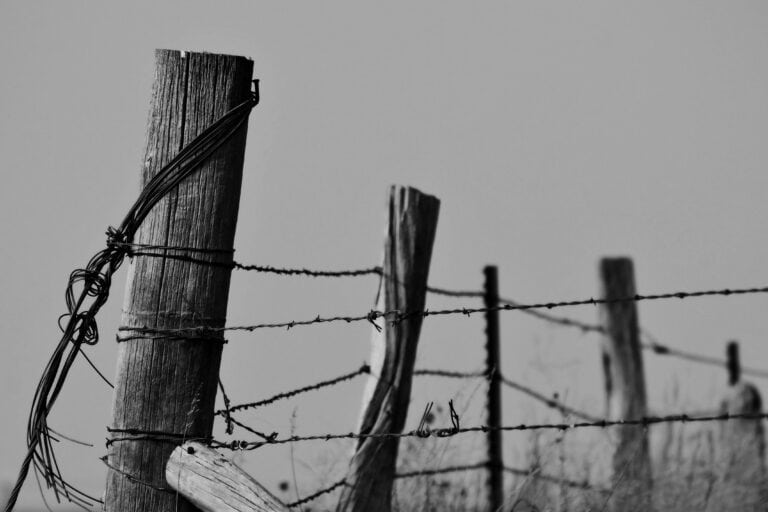How to Heal From Trauma: Why Your Body Won’t Feel Safe (And What This Really Means)
You do everything right. You journal, meditate, set boundaries, “do the work.” But your body still feels like it’s waiting for something terrible to happen.
The tight shoulders that never relax. The exhaustion that sleep doesn’t fix. The way you hold your breath without realizing it.
This isn’t because you’re broken or healing “wrong.” These are common trauma response symptoms – your body is still organized around survival and doesn’t know the danger has passed.
When “Strength” Is Actually Survival
The Weight of Holding Everything In
You’ve been praised for being calm under pressure. For never falling apart. For keeping it together when everyone else loses it.
But underneath that composure, your body is carrying everything you refuse to let out.
Those headaches? The chronic tension in your neck? The bone-deep exhaustion that rest doesn’t touch? They’re not random symptoms. They’re the physical weight of suppressed emotions.
Here’s what happened: At some point, your nervous system decided that feeling wasn’t safe. Maybe crying got you punished. Maybe anger was met with silence. Maybe your joy was “too much” for others.
So your body adapted. It learned to tuck feelings away to protect you. This is how trauma gets stored in the body.
The Problem with Pushing Down
When trauma is stored in the body, suppressed emotions don’t disappear – they get held in your tissues. They show up as:
- Chronic tension and pain
- Sudden outbursts you can’t control
- A nervous system working overtime just to function
- The feeling that you’re constantly “holding yourself together”
Healing doesn’t start with forcing emotions out. It starts with noticing the moment you clamp down. The jaw lock. The throat tightening. The automatic “don’t feel this.”
That awareness is the beginning. Because suppression isn’t strength – it’s survival. And your body deserves more than just surviving.
The Cost of Silencing Yourself
You’re the “easy one.” The one who never complains. The peacekeeper.
But every time you bite your tongue or swallow your truth, you’re teaching your nervous system that your needs don’t matter. That safety comes from disappearing.
Why This Happens
Your body learned that speaking up carried consequences:
- Voicing anger meant punishment
- Sharing sadness got you dismissed
- Asking for love was met with rejection
So silence became your shield.
The Hidden Damage
Self-silencing creates:
- A disconnection from your own truth
- Eroded self-trust (because you constantly override what you feel)
- Relationships where you’re physically present but emotionally absent
- Physical symptoms: tight chest, shallow breathing, locked throat
The path forward isn’t about shouting your truth everywhere. It’s about noticing those micro-moments when you silence yourself. The pause before “I’m fine.” The shift in your body when you swallow words.
Each moment is a chance to choose staying with yourself, even when your voice shakes.
When “Getting Things Done” Becomes Survival Mode
You’ve been praised for your productivity. Your ability to carry more than your share. Your reliability.
But if rest feels like failure and saying no feels dangerous, you might be overfunctioning – survival mode disguised as strength.
How This Pattern Forms
Your nervous system learned that stillness wasn’t safe. Maybe:
- As a child, staying ahead of chaos was the only way to avoid it
- Your worth became tied to what you produced, not who you were
- “Doing” became the only way your body knew how to feel secure
The Real Cost
- Your system never gets to fully relax
- Burnout becomes chronic
- Your body holds constant tension from never coming down
- Emotional numbness from operating in permanent overdrive
Healing overfunctioning isn’t about becoming lazy. It’s about learning that safety can exist even when you’re not producing. Sometimes that’s letting dishes sit overnight. Sometimes it’s noticing the panic when you stop – and choosing to stay anyway.
Real strength comes when you allow your body to remember it’s safe to soften.
The Truth About How to Heal From Trauma
Here’s what healing from trauma really means: Teaching your body that safety exists now. That you don’t have to keep living with your fight or flight response stuck on “on.”
It’s not about:
- Erasing the past
- Becoming “better”
- Following a perfect timeline
- Never feeling triggered again
Healing is about returning to yourself. Every time you choose presence over suppression, voice over silence, rest over compulsive doing – you’re showing your body something new.
You’re proving that survival isn’t the only option anymore.
Signs of Unhealed Trauma: Where to Begin
Healing doesn’t start with a perfect plan. It starts with recognizing the signs that trauma is stored in your body and taking a single step that tells your nervous system: “I’m listening now.”
Common signs of unhealed trauma include:
- Feeling unsafe even when nothing’s wrong
- Chronic hypervigilance (always scanning for danger)
- Emotional suppression or numbness
- Overworking or inability to rest
- Physical symptoms like chronic tension or fatigue
That first step might look like:
- Noticing when your jaw tightens and choosing to soften
- Letting one true word out instead of swallowing it
- Giving yourself permission to rest before collapse
- Simply acknowledging: “I’m not here right now” when you dissociate
You don’t need the whole map. Every small choice toward presence is already bringing you home.
Frequently Asked Questions About Trauma and Healing
Common trauma response symptoms include: feeling unsafe even when nothing’s wrong, chronic hypervigilance, emotional numbness or suppression, inability to rest, and physical symptoms like chronic tension, headaches, or fatigue. If your body feels like it’s constantly waiting for something bad to happen, that’s often unhealed trauma.
When trauma is stored in the body, your nervous system holds onto survival responses that were once necessary. Suppressed emotions don’t disappear – they get held in your tissues as tension, pain, or chronic activation. Your body continues to organize itself around survival even when the danger has passed.
Feeling unsafe all the time often means your nervous system is stuck in a trauma response. Your fight or flight response remains activated because your body learned that danger could come at any moment. This hypervigilance was protective once, but now it’s exhausting your system.
Healing from trauma isn’t linear and doesn’t follow a timeline. Some people notice shifts in weeks, others need months or years. The key is that healing happens in layers – you don’t need to “get over” trauma, you learn to live with safety in your body again.
Trauma responses are your nervous system’s learned survival patterns, while anxiety can be a symptom of those responses. If you have anxiety that seems to come from nowhere, chronic hypervigilance, or feel unsafe without clear reason, these may be signs of unhealed trauma rather than general anxiety.
While professional support can be incredibly valuable, there are many somatic healing approaches that help with trauma responses. Body-based practices like breathwork, somatic experiencing, energy healing, and nervous system regulation can all support healing. The key is finding what feels safe and sustainable for your system.
Emotional numbness or dissociation is often how trauma gets stored in the body. When feeling wasn’t safe, your nervous system learned to disconnect you from sensation and emotion. This was protective, but now your body needs to slowly learn it’s safe to feel again.
Hypervigilance feels like constantly scanning for danger – being startled by sounds, feeling anxious in crowds, checking locks multiple times, or having trouble relaxing even in safe spaces. Your nervous system stays activated, ready to respond to threats that aren’t actually there.
If you’re ready for guided support in this healing process, a Distance Healing Session offers a safe space to reconnect with your body and begin addressing trauma responses in real-time. You don’t have to navigate this alone.


